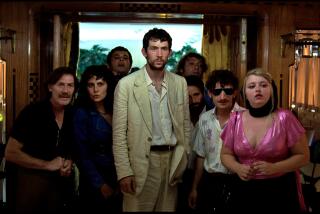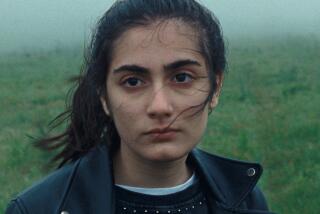FICTION
- Share via
THE CHIMERA by Sebastiano Vassali. (Scribner: $24; 313 pp.) This novel, translated form the Italian by Patrick Greagh, was the winner in 1990 of Italy’s Strega Prize, previously awarded to such luminaries as Umberto Eco and Giuseppe Lampedusa. It is the story of a girl, Antonia, who lived from 1590 to 1610 in the village of Zardino in the Po Valley, surrounded by the Alps and rimmed by the river Sesia. The author, looking out his window at the same landscape, proclaims in a brief Prelude that “In the present there is no story worth telling. The present is hubbubb. . . . To find the key to the present, we must withdraw from the hubbub.” He finds his story in this account of Antonia’s death at the hands of religious zealots in a 17th-Century ghost town. At the age of 10, Antonia, already too beautiful for her own good (see “Brother of Sleep,” above), is taken from the House of Charity of San Michele to live with foster parents, peasant farmers in Zardino. Village feuds and general envy paint Antonia with all the qualities of a witch, and witness to her many perverse rendezvous with the Devil are legion. She is tortured, put in prison, raped repeatedly and otherwise encouraged to behave like an insane person in the thrall of Satan. Her appearances before the Inquisitor are familiar, and it becomes clear that among other things she is being punished for falling in love with a foreigner, a “Stroller,” a good-for-nothing who does not deserve her loyalty to his secret identity. It’s a desperate story, buried in layers of history, whose hero captured Sebastiano Vassalli centuries later, daydreaming out his window, forcing him to tell her side of the story.
More to Read
Sign up for our Book Club newsletter
Get the latest news, events and more from the Los Angeles Times Book Club, and help us get L.A. reading and talking.
You may occasionally receive promotional content from the Los Angeles Times.









